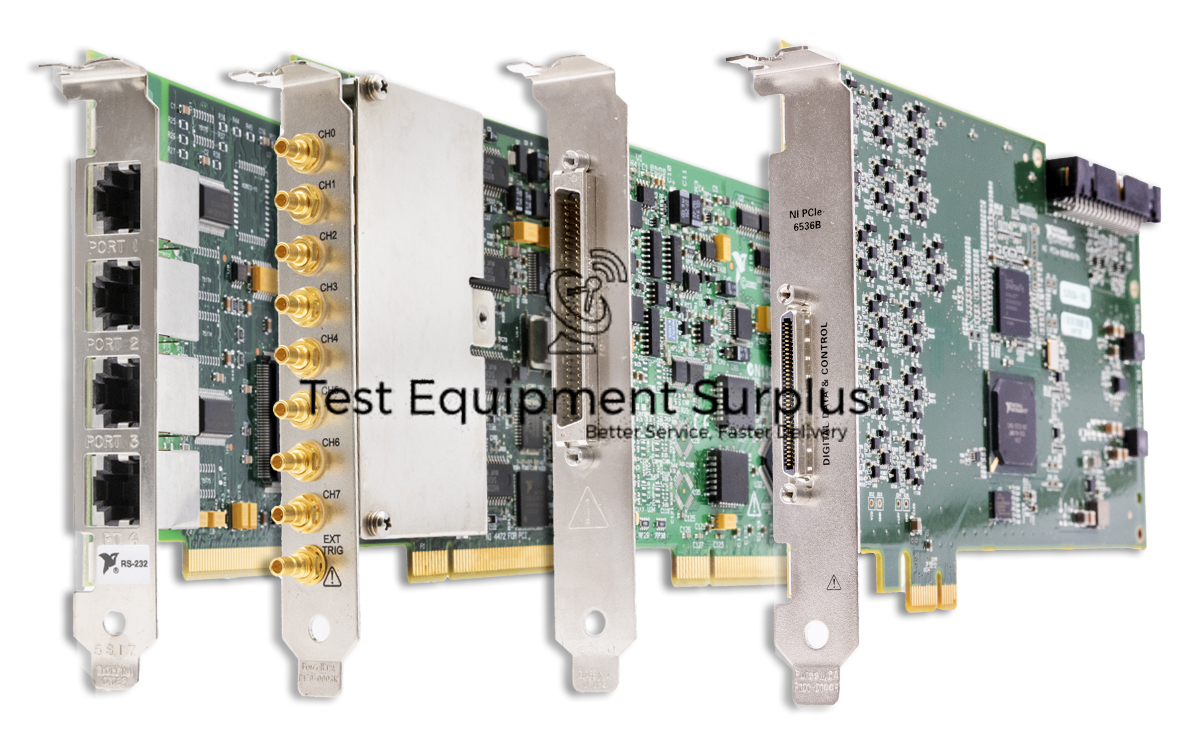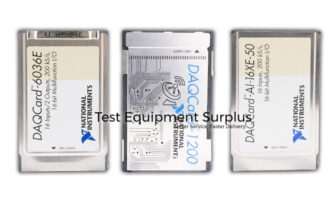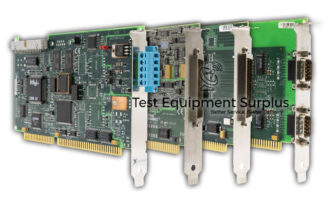Description
The National Instruments PCIe-7846R Multifunction Reconfigurable I/O Device, with part number 786456-01, features a powerful Kintex-7 FPGA and boasts a high maximum sampling rate of 500 kS/s. It is programmable via the NI LabVIEW FPGA Module, offering great flexibility for a variety of applications. This device is equipped with 48 bidirectional digital channels and 8 analog input channels that support RSE, NRSE, and DIFF input modes, with an analog input voltage range that is selectable through software.
The device ensures precise data acquisition with a 16-bit resolution ADC that has a swift conversion time of 2 µs, and it is designed to protect against overvoltage with a limit of ±42 V maximum voltage. Additionally, it features 8 analog output channels with a 16-bit resolution, capable of reaching a maximum update rate of 1 MS/s, and utilizes an enhanced R-2R DAC type for high-quality signal output.
| Feature | Description |
|---|---|
| Part Number | 786456-01 |
| Device Type | Multifunction Reconfigurable I/O Device |
| FPGA | Kintex-7 |
| Maximum Sampling Rate | 500 kS/s |
| Programming Interface | NI LabVIEW FPGA Module |
| Channel Type | 48 bidirectional digital channels |
| Analog Input Channels | 8 |
| Analog Input Modes | RSE, NRSE, DIFF |
| Analog Input Voltage Range | Selectable through software |
| Resolution (ADC) | 16-bit |
| ADC Conversion Time | 2 µs |
| Overvoltage Protection | ±42 V maximum voltage |
| Analog Output Channels | 8 |
| Analog Output Resolution | 16-bit |
| Maximum Output Update Rate | 1 MS/s |
| DAC Type | Enhanced R-2R |
Question 1: What is the analog input voltage range of the National Instruments PCIe-7846R Multifunction Reconfigurable I/O Device, and through which software can this range be selected?
Answer 1: The National Instruments PCIe-7846R Multifunction Reconfigurable I/O Device leverages its Kintex-7 FPGA to programmatically handle RSE, NRSE, and DIFF input modes for its 8 analog input channels, and offers a software-selectable analog input voltage range to accommodate various signal levels for precise data acquisition.
Question 2: What is the maximum sampling rate and resolution of the analog-to-digital converter (ADC) on the National Instruments PCIe-7846R Multifunction Reconfigurable I/O Device?
Answer 2: The analog input voltage range of the National Instruments PCIe-7846R Multifunction Reconfigurable I/O Device is selectable through software, but the specific range is not provided in the given description. The software used to select this range is NI LabVIEW FPGA Module.
Question 3: What are the input and output capabilities of the National Instruments PCIe-7846R Multifunction Reconfigurable I/O Device, and how does its Kintex-7 FPGA contribute to its functionality?
Answer 3: The National Instruments PCIe-7846R Multifunction Reconfigurable I/O Device features a maximum sampling rate of 500 kS/s and a 16-bit resolution ADC, and it utilizes an enhanced R-2R DAC for its analog outputs.
Question 4: How does the National Instruments PCIe-7846R Multifunction Reconfigurable I/O Device utilize its Kintex-7 FPGA to handle the various input modes, and what are the specifics of its analog input voltage range?
Answer 4: The National Instruments PCIe-7846R Multifunction Reconfigurable I/O Device offers 48 bidirectional digital channels and 8 analog input channels supporting RSE, NRSE, and DIFF input modes, along with 8 analog output channels, all benefiting from the high processing power of the Kintex-7 FPGA, which enables flexible and fast data processing, ultimately contributing to the device’s high maximum sampling rates of 500 kS/s for inputs and 1 MS/s for outputs.
Question 5: What is the maximum sampling rate and resolution of the ADC used in the National Instruments PCIe-7846R I/O Device, and what type of DAC does it utilize for its analog outputs?
Answer 5: The maximum sampling rate of the analog-to-digital converter (ADC) on the National Instruments PCIe-7846R Multifunction Reconfigurable I/O Device is 500 kS/s, and it features a 16-bit resolution.



